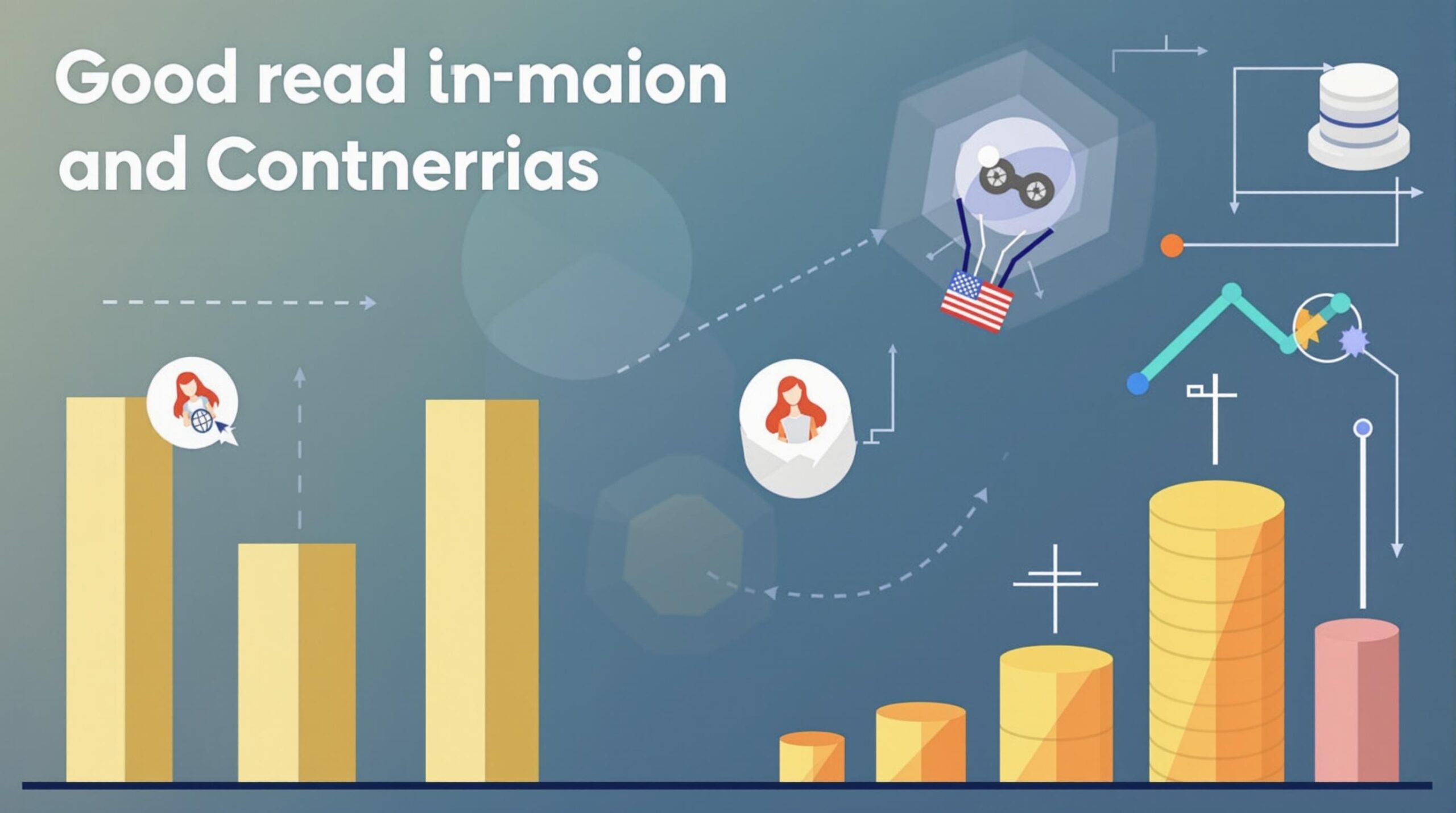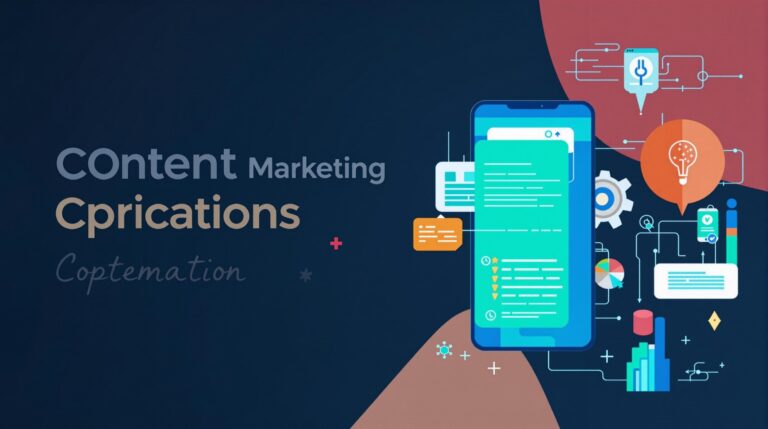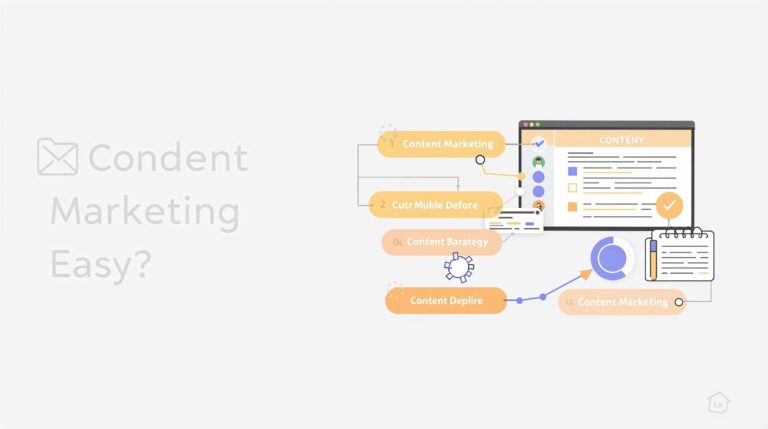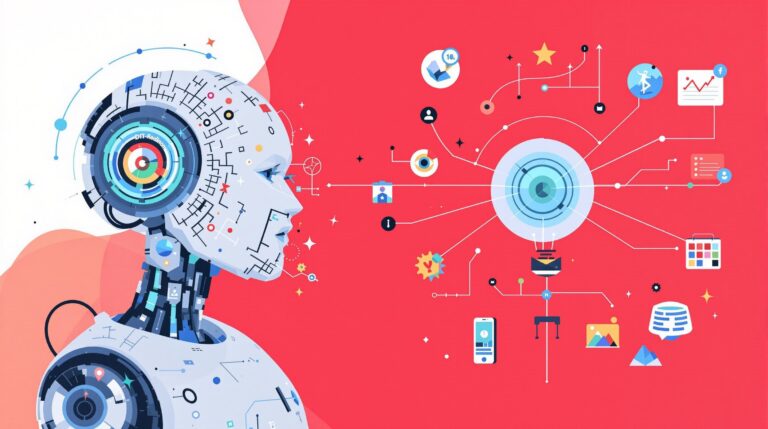The Future of Content Automation and SEO
The convergence of artificial intelligence with content creation is reshaping how marketers approach SEO strategy and execution. As we move forward, AI-powered content automation is not just streamlining workflows but fundamentally transforming how content performs in search engines, with both opportunities and challenges that require strategic adaptation.
Key Takeaways
- Productivity gains from AI content tools save professionals an entire workday weekly
- Google’s N-E-E-A-T standards prioritize neutrality and user experience beyond traditional E-A-T factors
- Emerging Generative Engine Optimization (GEO) techniques help content perform in AI answer engines
- Effective content automation requires a balanced human-AI partnership to overcome creative limitations
- The AI content market is projected to grow at 37.3% CAGR by 2030, transforming multiple industries
AI Content Revolution: Transforming Production and Performance
The statistics paint a compelling picture: 80% of workers report that generative AI improves their work quality, while 46% of marketers now use AI specifically for copywriting tasks. This shift isn’t just about convenience—it translates to tangible productivity gains, with professionals saving a full workday per week through content automation tools that enhance SEO.
The efficiency gap between traditional and AI-assisted content creation is striking. A typical 1,000-word article might require 8-10 hours through conventional methods, including research, drafting, editing, and optimization. With AI-driven processes, that same output can be achieved in just 1-2 hours, allowing for much higher content velocity without sacrificing quality.
Core technologies making this possible include Natural Language Processing (NLP) and machine learning algorithms that analyze vast datasets to generate keyword-targeted content. These systems don’t just string words together—they understand context, user intent, and search patterns to produce material that’s both relevant and strategic.
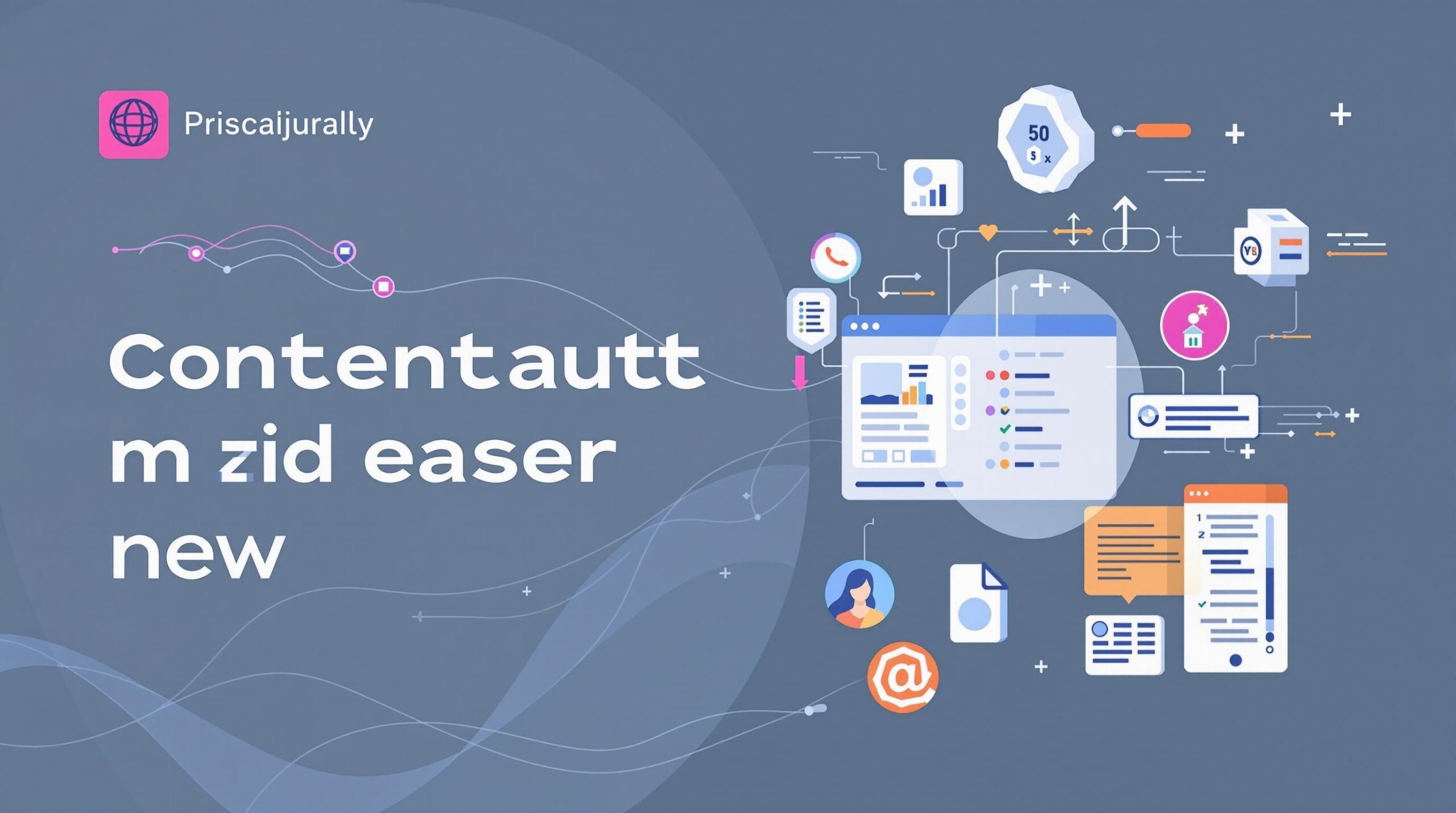
From E-A-T to N-E-E-A-T: Google’s Evolving SEO Standards
Google’s evaluation criteria have expanded beyond the familiar E-A-T framework (Expertise, Authoritativeness, Trustworthiness) to the more comprehensive N-E-E-A-T standards. This updated approach adds Neutrality and Experience to the mix, reflecting a deeper focus on unbiased content that demonstrates genuine first-hand knowledge.
The search landscape faces another significant shift with the rise of “zero-click searches” through AI Overviews, which have reduced click-through rates by 12-15%. This means your content must now be optimized not just for traditional search results but for answer engines that extract information without directing users to your website.
This evolution has given birth to Generative Engine Optimization (GEO), a specialized approach for optimizing content to perform well in AI answer engines like Google’s Gemini and OpenAI’s ChatGPT. This requires different tactics than traditional SEO:
- Structured data markup to help AI systems categorize and extract information
- Conversational Q&A formatting that mirrors how users interact with AI assistants
- Enhanced schema implementation to provide context and relationships
- Concise, factual presentations that AI can confidently reference
The ROI of AI: Data, Personalization, and Business Impact
The business case for AI-powered content is becoming increasingly clear. A remarkable 70% of brands acknowledge that AI has transformed their personalization capabilities, with Netflix’s algorithm-driven recommendations reportedly generating $1 billion annually in value. This isn’t an outlier—83% of companies now prioritize AI in their business strategies, with 68% of marketing leaders reporting tangible returns on these investments.
Personalization is where AI content truly shines. Campaigns tailored to specific audience segments consistently outperform generic content, showing 2-3x higher engagement rates. This personalization relies heavily on first-party data integration, which has become even more critical amid tightening privacy regulations like GDPR and CCPA.
The integration of first-party data with AI content systems allows for:
- Hyper-targeted messaging based on past user behaviors
- Dynamic content that adapts to individual preferences
- Predictive analytics that anticipate customer needs
- Compliance-friendly personalization that respects user privacy
Tools Powering the Future of Content
Several key platforms are leading the charge in AI-powered content generation with each offering distinct advantages for different business needs. Feedalpha combines AI content creation with social media scheduling capabilities, making it particularly valuable for small teams with limited resources who need to maintain consistent output across channels.
Copy.ai has positioned itself as a comprehensive GTM AI Platform focused on SEO-optimized articles, cluster topic development, and GEO optimization for enterprise-level search performance. Its end-to-end workflow automation handles everything from keyword research to final content delivery.
HubSpot continues to be an industry leader, used by 44% of marketers for AI-powered data analysis and content optimization. Its strength lies in integrating content automation with broader marketing operations and customer management systems.
When selecting the right platform for your needs, consider these key differentiators:
- Content types supported (articles, social posts, product descriptions)
- Integration capabilities with existing marketing technology
- Customization options for brand voice and style
- SEO and GEO optimization features
- Analytics and performance tracking
The Human-AI Balance: Challenges and Limitations
Despite impressive advances, AI content systems still face notable limitations. About 44% of marketers cite AI’s struggle with creative storytelling and emotional nuance—elements that often require human insight and experience. This highlights the importance of maintaining human oversight in the content creation process.
Risk factors can’t be ignored: approximately 12% of AI-generated content raises plagiarism concerns, and algorithmic bias remains a persistent issue. This can manifest in content that unintentionally reinforces stereotypes or lacks cultural sensitivity.
The most effective approach is a hybrid workflow that combines AI efficiency with human creativity and judgment. I recommend a process where:
- AI systems handle initial drafting, research compilation, and basic optimization
- Human editors refine tone, check factual accuracy, and add creative elements
- Supplementary tools like Grammarly enhance readability and style consistency
- Final review ensures brand voice consistency and strategic alignment
This balanced approach leverages AI’s transformative capabilities while preserving the human elements that connect most deeply with audiences.
Market Projections: The Growth Trajectory of AI Content
The AI market as a whole is on a remarkable growth trajectory, projected to expand at a 37.3% CAGR and reach approximately $2 trillion by 2030. Content automation represents a significant slice of this expansion, particularly as it aligns with growing investment in account-based marketing (ABM) strategies.
ABM budgets are rising steadily, with 80% of marketers planning to increase their spending in this area. The success rate is compelling—93% of ABM campaigns are already delivering results, but they require automated, hyper-targeted content at scale to maintain effectiveness.
Several sectors stand out for their rapid adoption of AI content technologies:
- Healthcare, where 38% of providers now use AI diagnosis tools supported by automated content systems
- E-commerce, with AI-generated product descriptions improving conversion rates
- Financial services, leveraging automated reporting and personalized financial advice
- Education, using AI to create adaptive learning materials
This widespread industry adoption indicates that AI content automation is moving from competitive advantage to essential business practice.
Rising Importance of Specialized AI Content Strategies
As AI content tools become more common, competitive advantage shifts to specialized implementation strategies that combine technical SEO knowledge with creative content direction. This requires developing expertise in areas like structured data implementation, featured snippet optimization, and voice search compatibility.
Tool integration is becoming increasingly important—combining Feedalpha’s content generation capabilities with Copy.ai’s SEO optimization features, for instance, can create workflow efficiencies that exceed what either platform could achieve alone.
Key focus areas for specialized AI content strategies include:
- Semantic search optimization that addresses user intent rather than just keywords
- Cross-platform content adaptation for different discovery channels
- Multimedia content generation that integrates text with images and video
- Real-time content updating based on performance analytics
The most successful approaches maintain a balance between algorithmic understanding and creative input, recognizing that neither AI nor humans alone can achieve optimal results.
The Ethical Future: Building Responsible AI Content Systems
As AI content becomes more prevalent, the industry is developing guidelines and standards to ensure responsible implementation. Transparency requirements are emerging, with growing expectations around disclosing AI-generated content to audiences—not to stigmatize it, but to maintain trust and authentic communication.
The challenge moving forward will be balancing automation with authenticity—leveraging AI efficiency while preserving brand voice and genuine connection with audiences. This requires thoughtful content strategies that use AI as an enhancing tool rather than a replacement for human creativity.
A critical component of ethical AI content systems is diversity in training data, which helps prevent algorithmic bias from producing content that inadvertently alienates or misrepresents certain groups. The most forward-thinking companies are already auditing their AI systems for these issues and implementing corrective measures.
The future of content automation and SEO lies not just in technological advancement but in responsible implementation that respects both audience needs and ethical considerations. By approaching AI as a partnership rather than a replacement, marketers can achieve both efficiency and authenticity in their content strategies.
Sources
upfront-ai.com – The Future of SEO: AI-Driven Content Automation for Maximum Visibility

